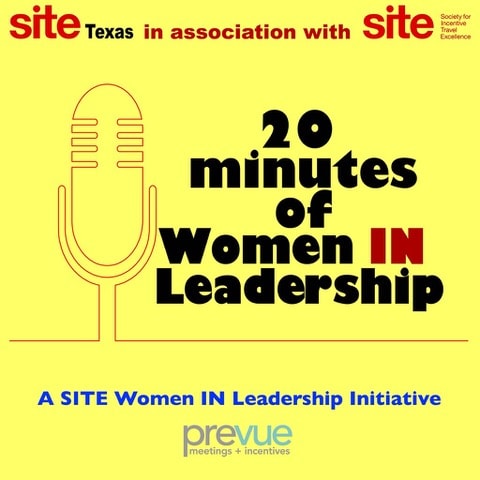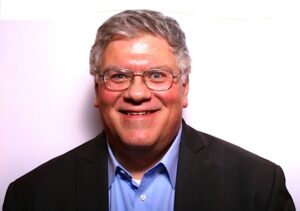
NYU’s Ron Naples on how he approaches mentoring, educating and inspiring his students to choose meetings, events, incentives and hospitality as a career.
Students today actually have the option of learning the meeting/event/incentive planning and hospitality professions for a university degree, unlike past generations who tended to fall into the field after learning on the job. But it can be challenging to build awareness that this career option even exists, much less set the next generation of planners and hospitality professionals on fire to pursue a life on the planning side.
In a recent Site 20 Minutes of Women in Leadership podcast, Prevue Editor and Curator of the publication’s Visionary Summits Barbara Scofidio spoke with Ron Naples, Adjunct Associate Professor of Hospitality at New York University (NYU), to learn more about how he and the NYU program go about inspiring the next generation of planners. NYU offers multiple industry degree programs, including an MS in Hospitality Industry Studies, an MS in Event Management, an MS in Travel and Tourism Management, and a BS in Hotel Management. Naples teaches the Events Management Program at the graduate level.
Hands-on Learning

As Naples points out, incentive travel was mainly shut down during the pandemic, so recent graduates weren’t able to get a lot of hands-on experience in that field. However, now that incentives are roaring back, he’s looking forward to being able to provide his students with internships and volunteer opportunities that will augment the in-class learning as well as show them what’s really involved in travel incentive planning.
NYU’s location in the heart of New York City makes it easier for students to get that hands-on experience — as Naples says, “New York City is our laboratory at NYU. We get to put our students into hotels and event [organizations] and all sorts of real-life situations, in addition to the classroom component.” His students often have opportunities to volunteer with industry associations as well. “we’re fortunate in that many of our graduate students who have gotten internships have been offered full-time positions after graduation,” he adds, noting that international students also often have the opportunity to take part in internships at embassies and consulates. The New York locations also provides a plethora of opportunities for students to learn directly from local industry professionals in the classroom. Students learn “not only the event planning perspective, but also that of all the suppliers” who serve the industry, Naples says.
The university’s IT laboratory also is put to good use for his students, who not only get to research their projects using computer programs they’ll be using after they graduate, but also are able to travel virtually using virtual reality (VR). “We’re taking them to other countries. We’re taking our restaurant students to organic farms — we’re able to use technology to give them outreach we can’t do in New York.”
Balancing Work and Life for the Next Generation of Planners
Work/life balance is an especially important factor for the next generation of meeting, event and incentive professionals. Naples says he makes a point of bringing in women in the industry to talk about how they manage their businesses to create balance. “You can’t let the job take over,” Naples stresses. “We work to live. I don’t believe anyone should have to live to work. And the events industry in particular can suck all the wind out of your time if you let it. Managing time is important for both men and women.”
Working from home, something many event professionals were able to do during the pandemic, also is something many in the potential next generation of planners expect. “Students understand that you don’t need to be in the office five days a week…much of the planning process can be done from your laptop.” However, they also need to understand that they have to be on site during the event itself.
“Though we’ve talked about [work/life balance] a lot, I think the next generation is really doing it,” says Naples. That’s because today’s students are less concerned with titles than they are able to achieve what they want professionally without sacrificing their lives outside of work.
For those who may be challenged in finding their own voice, Naples says he deliberates creates groups where they can come out of their shells and engage in dialogue. This can be particularly challenging for female international students whose culture doesn’t encourage them to speak out or challenge others, especially men, he says. “By the end of my class, I’m happy to say that everyone in the classroom is willing to give their opinion.” He’s quick to add, “I’m not trying to create Americans out of non-American students. My goal is to create critical thinkers out of everyone.”
Focus on ROI
Return on investment, or ROI, has always been a challenge for meeting and event professionals, especially when it comes to translating that ROI into terms the C-suite understands, he says. But, he adds, “We as event professionals should be part of the C-suite.” That’s why he helps his students dissect their meetings using the ROI methodology for meetings and events created by Jack and Patti Phillips at the ROI Institute.
“When I teach strategic analysis, it’s all about why we are doing this and were we successful? And if we weren’t, what are we going to change to make it successful?” Naples says. “Because whether you’re doing a time management education program, or an incentive travel program for your highest performers, it’s all about the return on investment…How do you measure what they got out of that meeting?
“Gone forever are the days where people just say, ‘I had a good time.’ Having a good time doesn’t count.” Naples’ graduate students’ final projects include identifying what the ROI is, and every semester starts with talking about goals and objectives of each meeting, and whether those are met in terms of retaining employees or increasing sales, for example.
Naples ended the podcast with three pieces of advice for the next generation of planners:
- Let your passion lead you.
- Learn as if you’ll live forever. “I always tell students to live as if you’ll die tomorrow but learn as if you’ll live forever.”
- Persevere. “This is a fabulous industry to be a part of. You will make contacts and connections that you will have your entire life. There may be rough patches but stick with it because you will not regret a career in this industry.”
Hear the full podcast, and all the Women in Leadership podcasts, at the SITE Texas website.
You May Also Be Interested In…
Industry Educator Dianne Devitt Launches New Certification
You Should Know About ELX, the Event Leaders Exchange
IRF Insights: How to Reach New Talent as the Industry Bounces Back










